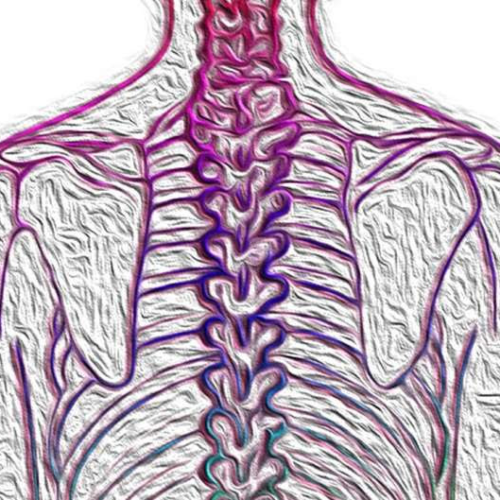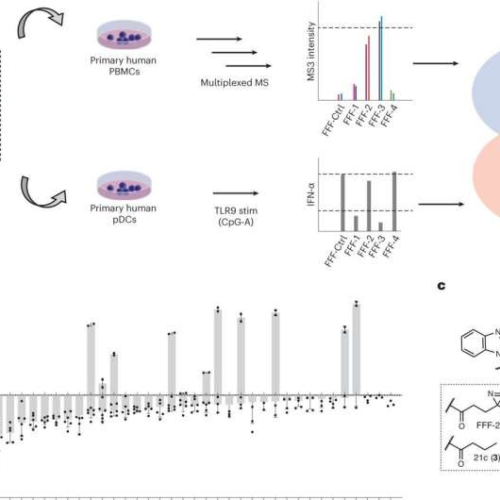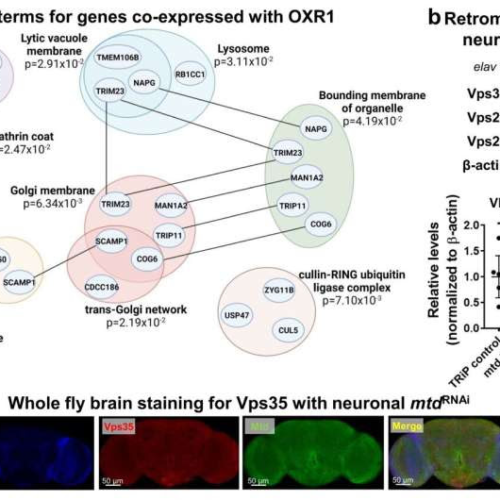Study suggests stress management could reduce biological riskPeer-Reviewed Publication OHIO STATE UNIVERSITY COLUMBUS, Ohio – Lifestyle and genetics, and a range of other factors within and outside our control, are known to contribute to development of metabolic syndrome, a cluster of conditions that add up to increased risk for serious health problems. A new study...
Year: <span>2024</span>
Obesity linked to detection of blood cancer precursor
Researchers find that weight, smoking habits, and exercise may impact one’s likelihood of developing multiple myeloma Peer-Reviewed Publication AMERICAN SOCIETY OF HEMATOLOGY (WASHINGTON, January 12, 2024) – Individuals with obesity are more likely to have monoclonal gammopathy of undetermined significance (MGUS), a benign blood condition that often precedes multiple myeloma, according to new research published...
Breaking the curve: A call for comprehensive scoliosis awareness and care
by Sanja Schreiber, Emily Somers, The Conversation Pixabay/CC0 Public DomainCael was a typical 15-year-old—until the discovery of an already advanced abnormal curvature of his spine. “I felt like the Hunchback of Notre Dame,” Cael told CBC News, recalling the emotionally draining and gruesome two-year wait for spinal surgery during which his curve progressed to a whopping...
ADHD medication—can you take it long term? What are the risks and do benefits continue?
by Alison Poulton, The Conversation Credit: Unsplash/CC0 Public DomainAttention deficit hyperactivity disorder (ADHD) is a condition that can affect all stages of life. Medication is not the only treatment, but it is often the treatment that can make the most obvious difference to a person who has difficulties focusing attention, sitting still or not acting on...
Four ways men and women can improve their health before trying to conceive
by Merissa Elizabeth Hickman, The Conversation Credit: CC0 Public DomainIt’s well-known how important it is to look after your health during and after pregnancy. But it can also be just as important for both men and women to focus on their health even before they begin trying for a baby. Preconception health refers to the lifestyle...
New analysis reveals how skin microbiome could be associated with wrinkles and skin health
by Cassidy Symons, University of California – San Diego Credit: Unsplash/CC0 Public DomainThe effects of aging and external factors like UV exposure on skin are well documented. As people age or spend more time in the sun, their skin tends to become drier and more wrinkled, Recent findings have identified an exciting potential new link to...
Study shows genetically modified pluripotent stem cells may evade immunological rejection after transplantation
by University of Arizona Generation of an HLA-I/II and MICA/B-deficient hESC line (A) Representation of the Cas9 editing strategy. Wild-type H1 hESCs were transfected with a Cas9 construct and up to three gRNAs at a time. gRNAs were for β2M, TAP1, CD74, CIITA, MICA, and MICB. Individual colonies were picked and sequenced to identify ones with...
New immune system-targeting compound shows early promise in treating lupus
by The Scripps Research Institute Chemoproteomic discovery of SLC15A4 inhibitors. Credit: Nature Chemical Biology (2024). DOI: 10.1038/s41589-023-01527-8Scientists from Scripps Research have developed a small molecule that blocks the activity of a protein linked to autoimmune diseases, including systemic lupus erythematosus (SLE) and Crohn’s disease. This protein, known as SLC15A4, has been considered largely “undruggable,” as most...
Scientists identify how dietary restriction slows brain aging and increases lifespan
by Buck Institute for Research on Aging mtd interacts with the retromer complex and is required for retromer maintenance. Credit: Nature Communications (2024). DOI: 10.1038/s41467-023-44343-3Restricting calories is known to improve health and increase lifespan, but much of how it does so remains a mystery, especially in regard to how it protects the brain. Buck Institute...
Study finds AI-driven eye exams increase screening rates for youth with diabetes
by Johns Hopkins University School of Medicine Credit: Pixabay/CC0 Public DomainA Johns Hopkins Children’s Center study of children and youth with diabetes concludes that so-called autonomous artificial intelligence (AI) diabetic eye exams significantly increase completion rates of screenings designed to prevent potentially blinding diabetes eye diseases (DED). During the exam, pictures are taken of the backs...








